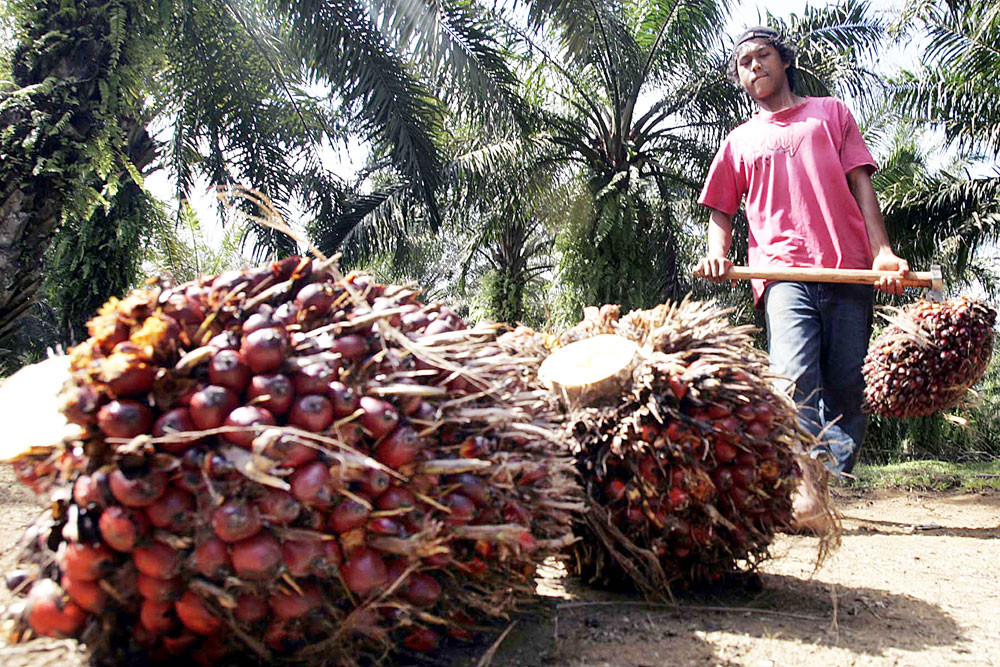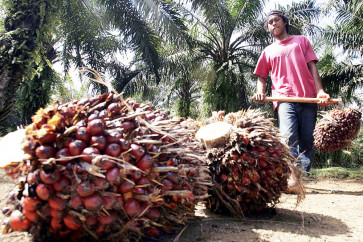Popular Reads
Top Results
Can't find what you're looking for?
View all search resultsPopular Reads
Top Results
Can't find what you're looking for?
View all search resultsEuropean elections put palm oil at risk
The European parliamentary elections last month resulted in a significant and challenging outcome, especially for the palm oil industry.
Change text size
Gift Premium Articles
to Anyone
 Harvest time: A worker gathers oil palm fruit bunches at a plantation in Lampung. Indonesia and Malaysia, the first- and second-largest palm oil producers, have threatened to challenge the European Union via the World Trade Organization if the EU continues to phase out palm oil from transportation fuel. (The Jakarta Post/R. Berto Wedhatama)
Harvest time: A worker gathers oil palm fruit bunches at a plantation in Lampung. Indonesia and Malaysia, the first- and second-largest palm oil producers, have threatened to challenge the European Union via the World Trade Organization if the EU continues to phase out palm oil from transportation fuel. (The Jakarta Post/R. Berto Wedhatama)
T
he European parliamentary elections last month resulted in a significant and challenging outcome, especially for the palm oil industry. Both the Greens (Greens European Free Alliance) and the far-right nationalists gained additional seats, while the center-right and center-left lost their majority.
The main agenda item for the Greens is a climate change policy, while the far-right brings a populist and protectionist agenda, similar to the rhetoric of United States President Donald Trump. These two blocs are likely to form an unholy alliance over their policies on palm oil.
Greens candidates had made their intentions on palm oil clear from the start. The Greens in the parliament are seeking to maintain a “ban” on palm oil through the Renewable Energy Directive (RED) II and also to have the European Commission introduce new, tougher rules on palm oil.
The RED II is to become effective in 2021. The use of palm oil as a biofuel would be capped at 2019 levels. From 2024 its use is to fall to zero — by 2030 at the latest. However, the European Union is seeking to introduce further measures. It is moving to finalize the Action Plan on Deforestation in 2019 and it is to seek a parliamentary vote on a deforestation regulation in 2020. This would likely see the introduction of rules that limit imported commodities that have links to deforestation.
Faced with this challenging situation, there is no alternative for Indonesia’s government other than to begin a systematic and well-planned effort to ensure that the palm oil industry would continue have a presence in EU markets.
Indonesia still has room to influence the implementation of RED II in favor of palm oil. The workings of the European Parliament, Commission and Council in the EU are determined in behind-the-scenes negotiations.
There are member states that stand to lose from RED II. A country like the Netherlands could see traded volumes of palm oil drop significantly, harming transport and logistics industries. Countries that don’t produce rapeseed or sunflower would have to contend with simply paying more for renewable fuels — with no real economic gains.

















